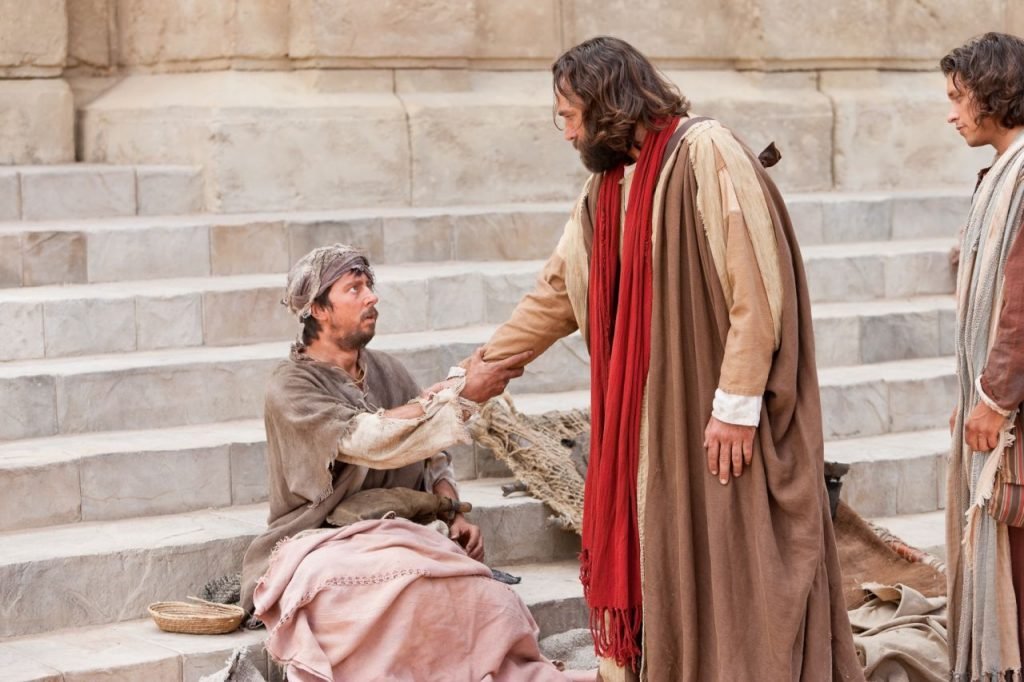The story of how Peter denied Jesus three times and was forgiven has been told many times and in this article, we brought you some great lessons from it.
Peter the apostle is one of the most prominent figures in the Gospels, a rugged and fallen man whose emotions often got him into trouble, and yet he was clearly a favorite of Jesus Christ. But there is something that most people think of when they hear his name: “Peter denies Jesus. “
This is one of the most remembered things about the apostle, and it is because it was related to the death of Jesus. But could it be that Peter enjoyed the moment in which he denied Jesus? Do you regret this event that could be called betrayal? What can we learn from this? Here we will help you answer these questions.

Who was Peter?
Peter’s real name was Simon. With his brother Andrew, Simon was a follower of John the Baptist. When Andrew introduced Simon to Jesus of Nazareth, Jesus renamed him Cephas, an Aramaic word meaning “rock.” The Greek word for rock, “Petros,” became the new name for this apostle, Peter. He is the only Peter mentioned in the New Testament.
His aggressiveness made Peter a natural spokesman for the twelve. However, he often spoke before thinking, and his words embarrassed her.
Jesus included him in his inner circle when he took him along with James and John to Jairus’ house, where Jairus’ daughter was raised from the dead ( Mark 5:35-43 ).
Peter was later among the very disciples Jesus chose to witness the transfiguration ( Matthew 17:1-9 ). Those same three saw the agony of Jesus in the Garden of Gethsemane ( Mark 14:33-42 ).
Peter’s first denial (John 18:17-18)
We are not told where John went after bringing Peter to the yard area. He probably crossed the courtyard to the room where Jesus’ audience was held, leaving Peter alone with the palace servants.
We can only guess what caused the doorman to question Peter. Perhaps his facial expressions gave him away. Perhaps his association with John (who was known to be a disciple of Jesus) aroused his suspicion. No doubt Peter was somewhat nervous and scared.
In any case, the servant girl approached Peter, looked at him attentively, and asked him if he was not one of Jesus’ disciples. Verse 17 says that when she asked Peter if he was one of Jesus’ disciples, he said, “I’m not.”
A simple servant girl said to Peter: “Aren’t you also one of this man’s disciples?”
And that simple question was enough to knock Peter down! The grammatical structure of the maid‘s question is expressed in such a way that a negative answer is expected.
The question says more literally: “You’re not one of his disciples, are you?” Satan almost always tries to make it easy for us to sin. The question was asked in such a way that it was easy for Peter to say “no.”
The question took Peter by surprise. He was not up to the challenge, and he not only denied Jesus, but he also told a lie in doing so. Satan still uses this tactic.
He knows that the mature Christian can often resist it if he is prepared and has his defenses in place. And so, he strikes at a time and place when the Lord’s follower least expects it.
CHECKOUT:
- With God, Nothing Is Impossible Explanation
- Short prayer for strength with bible verses
- 7 miracles of Jesus Christ in the bible
Peter’s additional denials (John 18:25-27)
As the trial of Jesus progressed from Annas to Caiaphas (and then to the Sanhedrin), Peter continued to nervously warm himself by the fire. Two times more. This man was questioned about his relationship with Jesus. And he again denied any knowledge of Jesus.
Verse 25 describes the moment Peter was asked, “Are you not also one of his disciples?” He denied it and said, “I’m not.” Matthew 26:71 says that “another maiden” was doing the questioning, and Luke 22:60 indicates that Peter answered a man. In any case, once again, Peter denies Jesus.
In verse 26, John adds an interesting detail. One of the interrogators was a relative of the man whose ear had been cut off by Peter a few hours earlier. It was that relative who had presented him with the last accusing finger.
This man was in the Garden of Gethsemane when Jesus was arrested, and he remembered Peter! And once again, this one was taken by surprise. Peter surely did not expect to be confronted by a relative of such a person! This time Peter was really scared.
He feared being singled out and punished for his violence in Gethsemane.
And to make his lack even more emphatic, Peter denies Jesus this third time with an oath.
Matthew and Mark say that he cursed and swore ( Matthew 26:74; Mark 14:71 ) that he did not know Jesus.

What Jesus had predicted
Jesus had predicted that Peter would deny him three times. He said, “Assuredly, I tell you, the rooster will not crow until you have denied me three times” ( John 13:36-38 ). As soon as the curse words “the rooster crowed” came out of Peter’s mouth.
The rooster’s crow in those early hours of the morning (3 AM) reminded Peter of Jesus’ first words. Also, Luke 22:61 says that, at that moment, Jesus turned and looked at Peter (perhaps through an open door).
Peter had returned to his old habit of cursing, but now it withered before Jesus’ gaze, and he suddenly realized what he had done. He staggered off into the night and wept bitterly ( Luke 22:62 ).
This man’s conscience was tender enough to make him cry. He genuinely repented and was greatly used by God approximately eight weeks later to preach the great Pentecost sermon.
How is the apostle Peter remembered and what was his reaction after denying him?
Most of us remember the fact that Peter denied Jesus three times during the night of Jesus’ trial. After his resurrection, Jesus took special care to rehabilitate this man and assure him that he was forgiven.
At Pentecost, the Holy Spirit filled the apostles. Peter was so overwhelmed that he began to preach to the crowd. Acts 2:41 tells us that 3,000 people were converted that day. Throughout the rest of that book, Peter and John were persecuted for their position with Christ.
According to historical books
Tradition says that the persecution of early Christians in Jerusalem brought Peter to Rome, where he spread the gospel to the new church there. Legend has it that the Romans were going to crucify Peter, but he told them that he was not worthy to be executed in the same way as Jesus, so he was crucified upside down.
What can we learn from Peter’s denials?
Simon Peter is not alone in his denials of Jesus! All of us are surrounded by subtle suggestions to deny the Lord. Peter’s experience should be a reminder to us: a lesson to teach us the truth of 1 Corinthians 10:12 :
“He who thinks he is standing, be careful not to fall.”
All of us, no matter how firmly we think we are standing, must be careful not to fall.
We can deny Jesus in various ways. Remember that Peter was not walking in rebellion against Jesus; he was simply cowardly before some accusing men and women.
We can deny Jesus when:
- We accept a dishonest business deal.
- We fail to stand up for what is right and good.
- An opportunity arises to discuss a religious and moral issue and we say nothing.
We defend Jesus when:
- We refuse to engage in lewd talk.
- We give God his place in our lives.
- We help people who have special needs.
- We refuse to retaliate when someone mistreats us.
- We do not get angry if someone crosses our path.
There is one final observation that every reader would do well to note. Peter denies Jesus when he is alone, separated from the other disciples. He had been with John when he entered the courtyard, but he had separated from him, and he was alone with the enemies of the Lord. The devil knows that we are usually weakest when we try to go it alone.
Jesus sent his disciples out two by two. The Bible encourages gathering together. We all need the support of other Christians. No Child of God should come to the conclusion that he can live well without the church, without the help of other Christians.
We all need to identify with a body of people who seek to be loyal to the Lord and His Word. God’s people come together ( Hebrews 10:25 ) to pray together, fight together, sing together, work together, and worship together.
When we see the zeal of our fellow Christians and share in their trials and rejoice in their joys, it gives us an act of new courage and a new devotion to serving the Lord, even in the midst of a crooked and wicked generation.
A very important lesson
When we forget that God is in control, we overstep our limited authority. God works through us despite our human weaknesses. No crime is too great to be forgiven by God. We can accomplish great things when we put our faith in God instead of ourselves.
